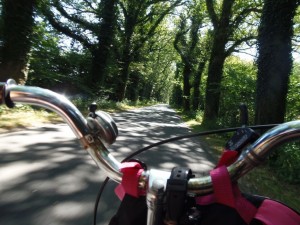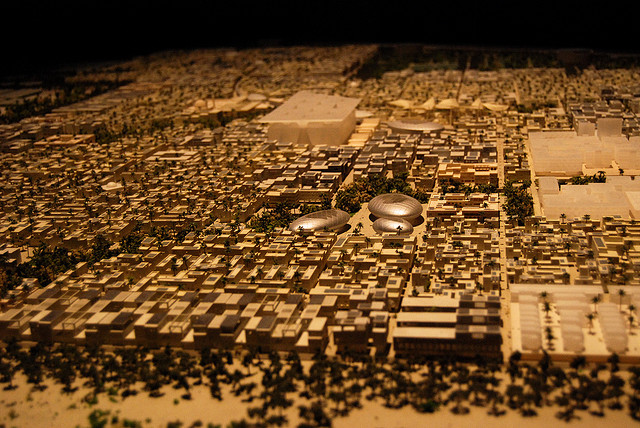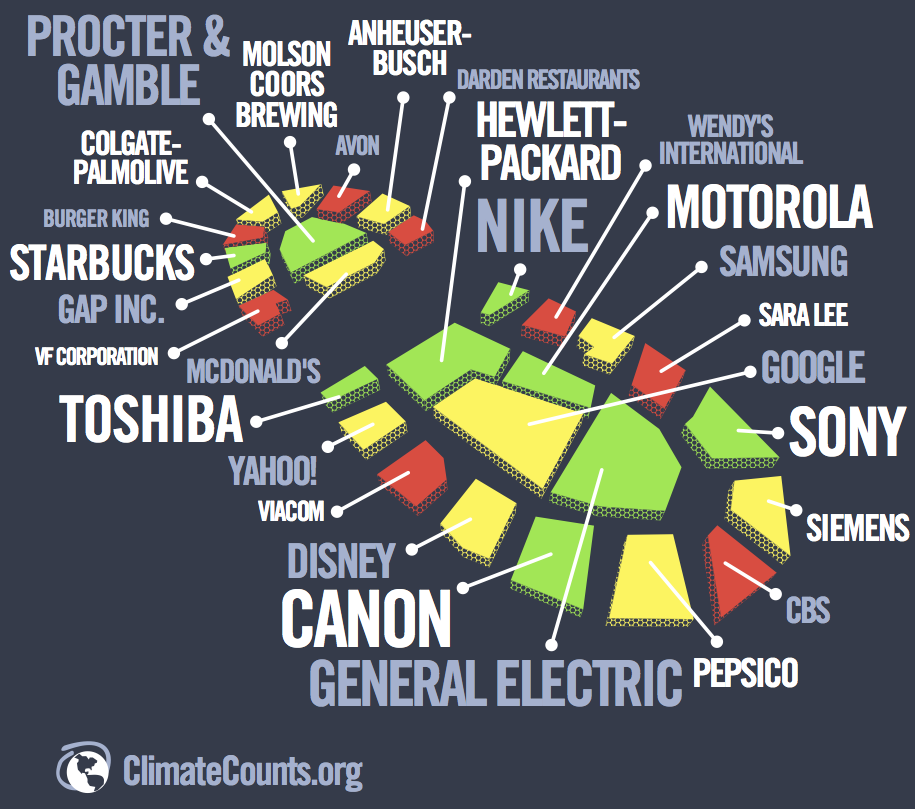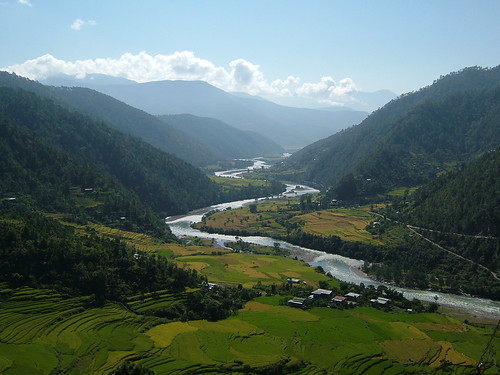Pushing the pedals for the environment
Over four weeks, from July 21 to August 17, members of the youth organization of the World Wildlife Fund (WWF) in Germany will be cycling across the country and covering hundreds of kilometers to raise awareness about climate and environment protection. Some of the young participants will be writing for GLOBAL IDEAS from on the road with their impressions and experiences. First off, 19-year-old Denis Mesterharm, a keen environmentalist. He had to cope with a broken bike, scorching heat and an uphill ride – and all that in just the first week.
Hello everybody and welcome to the first blog article about the “WWF-Jugend Fahrradstaffel”. First, off, what exactly is a “Fahrradstaffel?” Literally translated, it’s a bicycle relay. Members of the World Wildlife Fund’s youth organization are riding their bikes from Flensburg (in northern Germany near the border to Denmark) to Freiburg (in the south of Germany near the Swiss border). It’s a 2,210-kilometer route. The aim is to raise awareness about the need to protect the climate and to promote the environmental benefits of pushing the pedals rather than taking the car, especially for short distances in daily life.
This year, there are two routes. The West route goes through the cities such as Hamburg, Hanover and the former capital Bonn. The eastern stretch will take us to Leipzig, Erfurt and the capital Berlin. Both routes will converge in Frankfurt and end in Freiburg.
And now, to the first week where I took part. The first five stages were in Schleswig-Holstein, the northernmost state in Germany. Flensburg, the start city, is located on the “Flensburger Förde,” a fjord of the Baltic Sea. The first day was catastrophic. My bicycle broke down after just a few kilometers. The bike tube exploded and so I had to cancel the first stage.
But day two was better. From Eckernförde to Preetz via Kiel –capital of Schleswig-Holstein – that was the route. It was a bright sunny day without any problems. So I started Day 3 happily to this stage. Now I had to ride to the Hansa League City, Lübek. But this stage was more difficult than the last one. There were many more hills and lakes that made the route over 60 kilometers long. Normally I’ve had to ride 45-50 kilometers each day. Besides, it was hugely hot on the day and I forgot to take enough to drink with me.
Luckily, that problem didn’t present itself the next day because the route from Lübek to Büchen involved cycling through a big forest for most of the way and I had enough to drink with me.
But on day five, I forgot my camera at home, so I wasn’t able to take any photos on the way to Hamburg. Fortunately, the stretch wasn’t that scenic because much of it led through the city.
Day 6 was my last day on the road. From Hamburg to Lüneburg. On this stage, I crossed the Elbe river on a ferry at “Zollenspieker.” It’s an ancient customs post in Hamburg dating all the way back to the Middle Ages.
Upon arriving in Lüneburg, I handed over the WWF baton, some bicycle flags and one big flag, to the service point of the German railway (Deutsche Bahn). They were to hand it over the next day to the next member of our bicycle relay who finished the stretch. Thanks for reading this blog and watch this space for further entries from other bloggers from the bike relay.
Eco-city in the desert – role model or image coup?
The world’s largest oil producer, the Arabic Emirate Abu Dhabi, is building an eco-city right into the desert: zero CO2-emission, energy only from renewables, electric cars moving in tunnels below surface.
Well-known architect Norman Foster is responsible for designing the one squaremile large green square. First complexes are already finished, the whole project should be finished in 2025. 40.000 people shall live there, working in the city with addional 50.000 commuters traveling to Masdar. The city is meant to become the epitome of renewable energy and sustainability – such as Silicon Valley is for computer and internet technology. To realize these visions the emirate of Abu Dhabi invests the stunning amount of $22 billion.
But there are more and more experts doubting over sustainability of Masdar City: some say, it would be more effective to spend the money in isolating the local Beduins’ houses for example.
What is you opinion on such model projects? A good idea to test researcher’s ideas in reality or a waste of money, that would have made more effort elsewhere?
Score card confirms airlines and fast food companies as anti-climate
Grabbing that burger in the departure lounge before boarding your flight has just gotten worse. Farming the meat on your bun, and the emissions of your plane are among the top climate killers – that much was known. But now a new score card reveals that the companies in the business are not much better when it comes to their own climate credentials.
With little or no visible efforts to curb their carbon footprint, Wendy’s and Burger King are among those placed lowest in ClimateCount’s ranking of corporate commitment to climate protection around the world. McDonald’s, although placed marginally higher, outshines all others only by registering the largest annual drop in point score of any of the 145 companies surveyed.
Airlines do fare better on average. But particularly US airlines are among the most die-hart opponents of public policy moves towards climate protection.
Here are all the details and the ranking in the ClimateCounts.org scorecard flipbook
Going Organic in Bhutan
It’s an ambitious goal, but Bhutan’s government thinks it’s possible: at the Rio 20+ climate conference, Bhutanese Prime Minister Jigmi Thinley announced that his country will become the first in the world to have a completely organic agricultural system. While in Rio, Thinley made a solid case for sustainable farming, pointing out that the earth loses 24 billion (yes, billion) tons of topsoil every year – and 30% of the world’s arable land is becoming unproductive because of erosion.
Thinley said his new “National Organic Policy” is especially important in Bhutan, where two-thirds of the population works in agriculture. “Humankind has the ability to feed everyone on earth healthily and sustainably,” he said. NPR took a look at the pros and cons of the debate and brought up an important issue: farmers that have depended on chemical fertilizers for years will probably not be happy to give them up so quickly. But experts say it is possible.
So will this tiny nation set a mammoth example for the rest of the world?
Photo Credit:
CC BY-SA 2.0: sprklg/flickr.com









Feedback